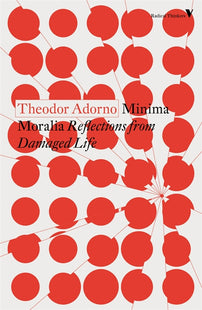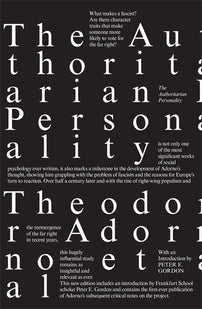Theodor Adorno on Gift-giving
Human beings are forgetting how to give gifts... Real gift-giving had its happiness in imagining the happiness of the receiver. It meant choosing, spending time, going out of one’s way, thinking of the other as a subject: the opposite of forgetfulness. Hardly anyone is still capable of this.

Our End of Year Sale has just started with 40% off ALL our books until January 2nd.
See all our reading lists, including The Year in 10 Books, Radicalize Your Niblings, Radical Happiness, Tis the Season to Abolish the Family, Understanding the Cost of Living Crisis, Christianity and Anticapitalism.
No exchanges allowed. – Human beings are forgetting how to give gifts. Violations of the exchange-principle have something mad and unbelievable about them; here and there even children size up the gift-giver mistrustfully, as if the gift were only a trick, to sell them a brush or soap. For that, one doles out charity [in English in original], administered well-being, which papers over the visible wounds of society in coordinated fashion. In its organized bustle, the human impulse no longer has any room, indeed even donations to the needy are necessarily connected with the humiliation of delivery, the correct measure, in short through the treatment of the recipient as an object. Even private gift-giving has degenerated into a social function, which one carries out with a reluctant will, with tight control over the pocketbook, a skeptical evaluation of the other and with the most minimal effort. Real gift-giving had its happiness in imagining the happiness of the receiver. It meant choosing, spending time, going out of one’s way, thinking of the other as a subject: the opposite of forgetfulness. Hardly anyone is still capable of this. In the best of cases, they give what they themselves would have wished for, only a few shades of nuance worse. The decline of gift-giving is mirrored in the embarrassing invention of gift articles, which are based on the fact that one no longer knows what one should give, because one no longer really wants to. These goods are as relationless as their purchasers. They were shelf warmers [Ladenhueter] from the first day. Likewise with the right to exchange the gift, which signifies to the receiver: here’s your stuff, do what you want with it, if you don’t like it, I don’t care, get something else if you want. In contrast to the embarrassment of the usual gifts, their pure fungibility still represents something which is more humane, because they at least permit the receiver to give themselves something, which is to be sure simultaneously in absolute contradiction to the gift.
In relation of the greater abundance of goods, which are available even to the poor, the decline of gift-giving may appear unimportant, and considerations on such as sentimental. However, even if it became superfluous in a condition of superfluity – and this is a lie, privately as well as socially, for there is no-one today whose imagination could not find exactly what would make them thoroughly happy – those who no longer gave would still be in need of gift-giving. In them wither away those irreplaceable capacities which cannot bloom in the isolated cell of pure interiority, but only in contact with the warmth of things. Coldness envelops everything which they do, the friendly word which remains unspoken, the consideration which remains unpracticed. Such iciness recoils back on those from which it spread. All relations which are not distorted, indeed perhaps what is reconciliatory in organic life itself, is a gift. Those who become incapable of this through the logic of stringency [Konsequenz: consequence, corollary], make themselves into things and freeze.
[book-strip index="1" style="display"]



